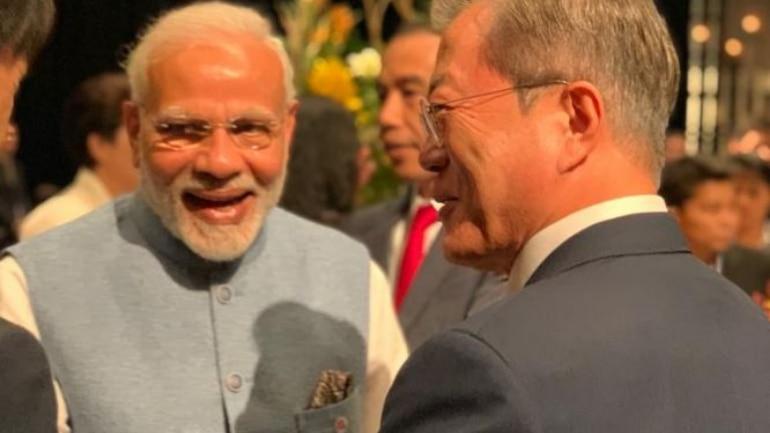India held official-level talks on the Quad Indo-Pacific formation on Thursday on the sidelines of the East Asia Summit in Singapore “for consultations on regional and global issues of common interest”.
Four separate statements were issued by each of the participating nations (India, US, Japan and Australia). While the Indian statement focussed on and “increasingly inter-connected Indo-Pacific region that the four countries share with each other and with other partners”, the others expressed “commitment” to strengthen “rules-based order” in the Indo-Pacific to “enhance” regional security.
“The parties noted the value of working together to support stability in the Indo-Pacific regional maritime domain,” said the official statement from Australia.
Japan’s official statement on the meeting read- “The four countries reaffirmed a shared commitment to maintain and strengthen a rules-based order in the Indo-Pacific in which all nations are sovereign, strong, and prosperous.”
“The officials reaffirmed a shared commitment to maintain and strengthen a rules-based order in the Indo-Pacific in which all nations are sovereign, strong, and prosperous,” said the US State Department press release.
The meeting took place at officials’ level. An informal group, that was formed a decade ago but has not been able to elevate its level of participation to ministry or summit level. China and balancing ties with this South Asian giant has been one of the reasons why the level of participation has been confined to mid-official level.
The focus during this meeting was infrastructure development and maritime security.
“They committed to strengthening connectivity and quality infrastructure based on sovereignty, equality and territorial integrity of all nations, as well as transparency, economic viability and financial responsibility,” said the MEA statement.
India’s statement this time around is a departure from the last time. While last time India was firm on “common commitment” to promote a rule-based order in the Indo-Pacific, this time the statement said that they “agreed to partner with other countries and forums in the regions” keeping the statement open-ended.
The officials also exchanged views on recent regional developments, including in Sri Lanka and Maldives. But interestingly, while US, Japan and Australia welcomed the change in guard in Maldives and encouraged an outcome to political developments in Sri Lanka consistent with “democratic principles”; the Indian statement did not mention of either of the two countries.
All four have committed to keeping the engagement going.








